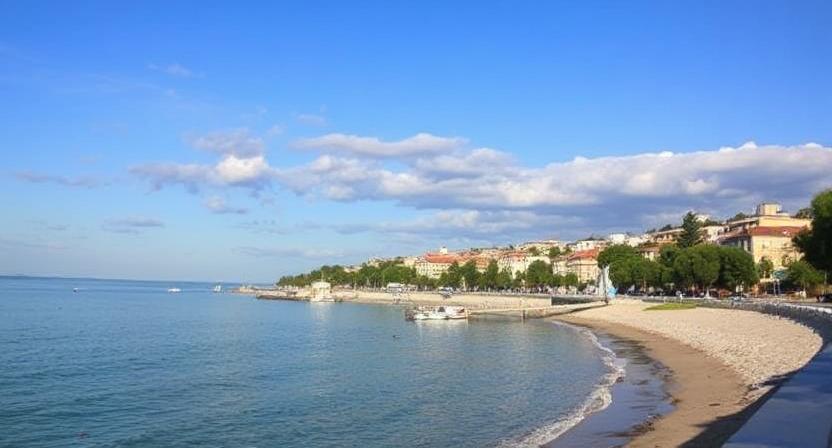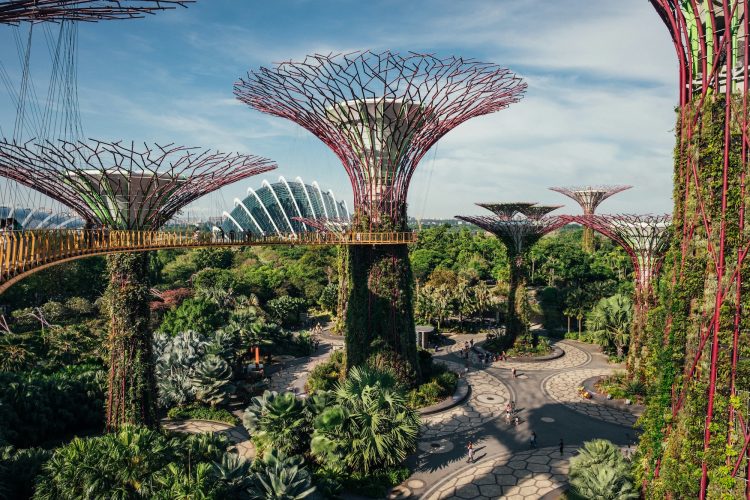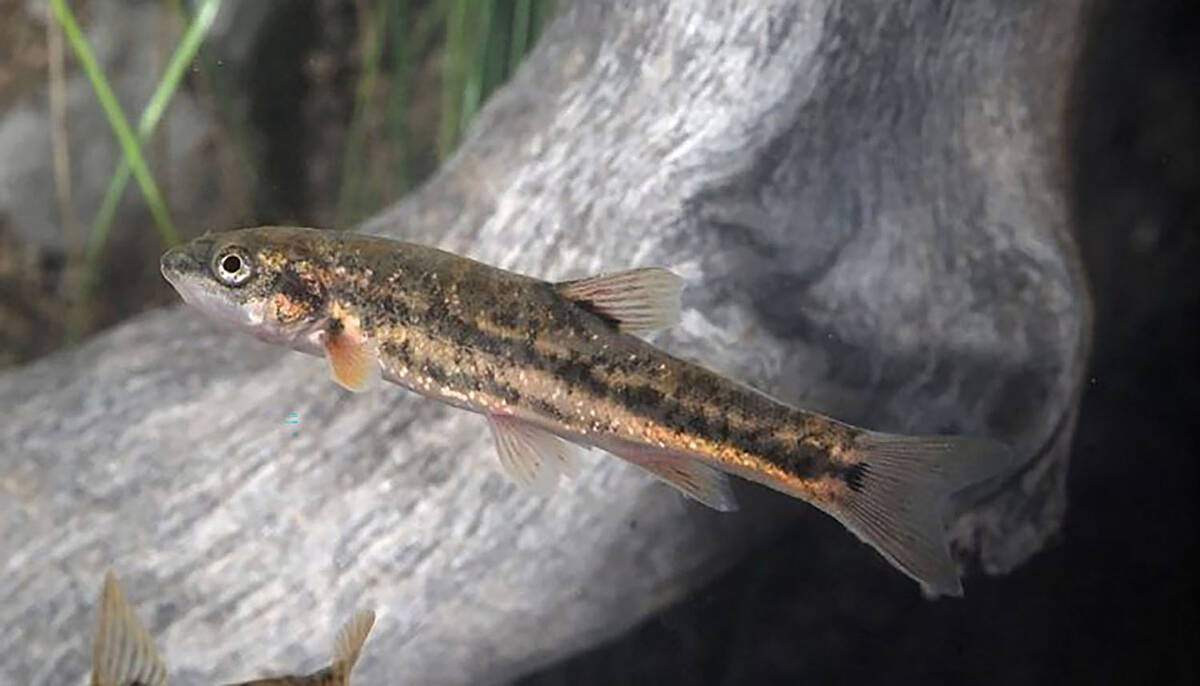Black Sea 2030 Forum in Burgas Highlights Sustainable Tourism, Eco-Tourism, and Regional Cooperation for Environmental and Economic Growth of Bulgaria – Travel And Tour World

Report on the Black Sea 2030 Forum: Integrating Sustainable Development Goals into Regional Tourism and Environmental Strategy
Executive Summary
The Black Sea 2030 Forum, held in Burgas, Bulgaria, from October 24-26, 2025, convened a multi-stakeholder assembly of government, business, academic, and non-governmental representatives. The forum focused on establishing a sustainable development framework for the Black Sea region, with significant emphasis on aligning regional policies with the United Nations Sustainable Development Goals (SDGs). Key discussions centered on balancing economic growth through tourism with environmental preservation, directly addressing SDG 8 (Decent Work and Economic Growth), SDG 12 (Responsible Consumption and Production), SDG 13 (Climate Action), SDG 14 (Life Below Water), and SDG 17 (Partnerships for the Goals).
Forum Objectives and Alignment with the 2030 Agenda
Primary Thematic Areas
The forum’s agenda was structured around critical challenges and opportunities for the region, directly corresponding to several SDGs:
- Green Transition and Blue Economy: Promoting economic models that support environmental health, in line with SDG 8 and SDG 12.
- Marine Environment Protection: Developing strategies to conserve the Black Sea ecosystem, a core objective of SDG 14.
- Climate Change Adaptation: Addressing the impacts of climate change on the region, contributing to SDG 13.
- Digitalization and Innovation: Leveraging technology for sustainable development, supporting SDG 9 (Industry, Innovation and Infrastructure).
- Regional Cooperation: Fostering collaborative efforts among Black Sea nations, embodying the principles of SDG 17.
Sustainable Tourism as a Driver for SDG 8 and SDG 12
Bulgaria’s Role in Promoting Sustainable Economic Growth
Bulgaria was positioned as a strategic leader in advancing sustainable tourism. Mayor Dimitar Nikolov of Burgas highlighted the city’s commitment to becoming a center for innovation and sustainable development, underscoring tourism’s potential to drive progress towards SDG 8 by creating jobs and stimulating local economies. The forum established that sustainable tourism must be the cornerstone of the region’s economic future.
Advancing Responsible Consumption and Production in Tourism
Discussions emphasized the need to integrate principles of SDG 12 into the tourism sector. Key strategies identified include:
- Promoting eco-tourism initiatives that preserve natural resources and cultural heritage.
- Implementing circular economy models to reduce waste and improve resource efficiency in tourism operations.
- Encouraging sustainable travel practices among international visitors to minimize environmental impact.
Environmental Stewardship: A Focus on SDG 14 and SDG 13
Protecting Marine Ecosystems (SDG 14)
A central theme was the urgent need for responsible solutions to protect the Black Sea’s marine environment. Energy Minister Zhecho Stankov called for the adoption of innovative technologies designed to restore, rather than damage, marine ecosystems. This aligns directly with SDG 14’s target to prevent and significantly reduce marine pollution and sustainably manage and protect marine and coastal ecosystems.
Climate Action and Innovation (SDG 13)
The forum addressed the necessity of climate action in the Black Sea region. The call for bold policies and technologies that facilitate transformation rather than mere adaptation reflects a proactive approach to achieving SDG 13. Harmonizing tourism development with long-term ecological balance was identified as critical for regional climate resilience.
Innovation and Partnerships: Catalysts for SDG 9 and SDG 17
Leveraging Science and Technology for Sustainable Development
Ekaterina Zaharieva, European Commissioner for Startups, Research, and Innovation, stressed the critical role of scientific research in achieving a balance between tourism growth, security, and climate action. This focus on innovation supports SDG 9 by promoting the integration of green and digital technologies into tourism infrastructure, such as eco-friendly accommodations and sustainable transport.
Strengthening Regional and Academic Partnerships
The forum exemplified SDG 17 by fostering collaboration among Black Sea nations, including Azerbaijan, Georgia, and Turkey, to promote coordinated sustainable travel policies. Furthermore, the role of academic institutions was highlighted. Prof. Sotir Sotirov of Burgas State University noted that universities are essential for providing the scientific knowledge and skilled personnel required to implement sustainable solutions, thereby creating a powerful partnership between academia, industry, and government.
Conclusion: A Collaborative Framework for a Sustainable Black Sea Region
The Black Sea 2030 Forum successfully established a foundational framework for regional cooperation focused on sustainable development. By explicitly linking tourism, economic growth, and environmental conservation to the Sustainable Development Goals, the forum has charted a course for Bulgaria and its partners to build a resilient and prosperous future for the Black Sea. The outcomes emphasize that a collaborative, multi-stakeholder approach, grounded in innovation and responsible stewardship, is essential to achieving the 2030 Agenda in the region.
Analysis of Sustainable Development Goals in the Article
1. Which SDGs are addressed or connected to the issues highlighted in the article?
-
SDG 8: Decent Work and Economic Growth
The article extensively discusses tourism as a “vital economic driver for Bulgaria and the region,” contributing significantly to GDP, creating jobs, and stimulating local economies. The focus is on achieving this growth sustainably.
-
SDG 9: Industry, Innovation, and Infrastructure
The role of “innovation,” “digitalization,” “scientific research,” and “innovative technologies” is repeatedly emphasized as crucial for balancing tourism growth with environmental protection. The article mentions integrating “green technologies into tourism infrastructure” and the role of universities in driving “technological progress.”
-
SDG 11: Sustainable Cities and Communities
The article highlights the importance of preserving the “region’s distinctive ecological and cultural heritage” alongside tourism development. The host city, Burgas, is presented as aiming to become a “hub for innovation, science, and sustainable development.”
-
SDG 12: Responsible Consumption and Production
The concept of sustainable tourism is central, with specific mentions of “green and circular economies,” “waste reduction,” “resource efficiency,” “sustainable consumption,” and “low-impact tourism.”
-
SDG 13: Climate Action
The forum is described as addressing “adaptation to climate change” and the need to balance “tourism growth, security, and climate action in the region,” indicating a direct link to this goal.
-
SDG 14: Life Below Water
A primary focus of the forum is the Black Sea itself. The article states that the event addresses the “protection of the marine environment” and the need for solutions to “restore” the environment, which is the core of SDG 14.
-
SDG 17: Partnerships for the Goals
The forum itself is a multi-stakeholder partnership, bringing together “government representatives, businesses, academia, and non-governmental organizations.” The article also stresses the need for “regional cooperation” and “coordinated efforts” among Black Sea nations.
2. What specific targets under those SDGs can be identified based on the article’s content?
-
Target 8.9: “By 2030, devise and implement policies to promote sustainable tourism that creates jobs and promotes local culture and products.”
The article directly aligns with this target by focusing on how “sustainable tourism has the potential to generate long-term economic growth” and “create jobs, stimulate local economies, and foster cultural exchange.” The promotion of “eco-tourism and cultural heritage tourism” is a central theme.
-
Target 9.5: “Enhance scientific research, upgrade the technological capabilities of industrial sectors in all countries…encouraging innovation.”
The article highlights the role of “scientific research and innovative technologies in sustainable tourism development.” It quotes the European Commissioner emphasizing that “Science and innovation are critical” and mentions the role of universities in providing “scientific knowledge necessary to create solutions for the tourism sector.”
-
Target 11.4: “Strengthen efforts to protect and safeguard the world’s cultural and natural heritage.”
This target is addressed through the article’s focus on balancing “tourism development with environmental sustainability, so that tourism remains prosperous while maintaining the region’s distinctive ecological and cultural heritage.”
-
Target 12.b: “Develop and implement tools to monitor sustainable development impacts for sustainable tourism that creates jobs and promotes local culture and products.”
The forum’s entire purpose is to discuss and encourage the development of “sustainable practices and tourism models.” The article’s emphasis on “green and circular economies in tourism” and “low-impact tourism” implies the need for monitoring tools to ensure these practices are effective.
-
Target 14.2: “By 2020, sustainably manage and protect marine and coastal ecosystems to avoid significant adverse impacts…and take action for their restoration in order to achieve healthy and productive oceans.”
The article’s call for “bold and responsible solutions to protect the Black Sea’s tourism potential” and the Energy Minister’s statement that the Black Sea needs “innovative technologies that do not destroy but restore” directly support this target’s goal of protecting and restoring marine ecosystems.
-
Target 17.17: “Encourage and promote effective public, public-private and civil society partnerships, building on the experience and resourcing strategies of partnerships.”
The Black Sea 2030 Forum is a clear example of this target in action, described as a collaboration of “government representatives, businesses, academia, and non-governmental organizations from all over the Black Sea region.”
3. Are there any indicators mentioned or implied in the article that can be used to measure progress towards the identified targets?
-
Indicator 8.9.1: Tourism direct GDP as a proportion of total GDP and in growth rate.
This is directly implied when the article states, “Tourism is a key pillar of Bulgaria’s economy, contributing significantly to its GDP.” Measuring this contribution would be a key indicator of progress.
-
Indicator 12.b.1: Number of sustainable tourism strategies or policies and implemented action plans with agreed monitoring and evaluation tools.
The article implies this indicator through its discussion of promoting “sustainable travel practices,” developing “sustainable tourism models,” and integrating “circular economy principles…into tourism practices.” The forum itself is a step toward creating such strategies for the region.
-
Indicator 14.2.1: Proportion of national exclusive economic zones managed using ecosystem-based approaches.
While not explicitly stated, the promotion of “eco-tourism initiatives that focus on natural resource preservation” and the overall goal to “protect the marine environment” imply the implementation of ecosystem-based management along the Black Sea coast, which this indicator measures.
-
Indicator 17.17.1: Amount of United States dollars committed to public-private and civil society partnerships.
The existence of the “Black Sea 2030 Forum” itself serves as a qualitative indicator of such partnerships. The article mentions Bulgaria investing in “eco-tourism initiatives” and encouraging “collaboration with European institutions,” which suggests financial commitments that could be measured by this indicator.
4. SDGs, Targets, and Indicators Table
| SDGs | Targets | Indicators |
|---|---|---|
| SDG 8: Decent Work and Economic Growth | 8.9: Promote sustainable tourism that creates jobs and promotes local culture. | 8.9.1 (Implied): Tourism’s contribution to GDP is mentioned as a key economic pillar. |
| SDG 9: Industry, Innovation, and Infrastructure | 9.5: Enhance scientific research and upgrade technological capabilities to encourage innovation. | The development and integration of “green technologies” and “sustainability innovations” into tourism infrastructure. |
| SDG 11: Sustainable Cities and Communities | 11.4: Strengthen efforts to protect and safeguard the world’s cultural and natural heritage. | Implementation of initiatives to preserve the “region’s distinctive ecological and cultural heritage” alongside tourism. |
| SDG 12: Responsible Consumption and Production | 12.b: Develop and implement tools to monitor sustainable development impacts for sustainable tourism. | 12.b.1 (Implied): The development of “sustainable tourism models” and “circular economy principles” which require monitoring. |
| SDG 14: Life Below Water | 14.2: Sustainably manage and protect marine and coastal ecosystems and take action for their restoration. | 14.2.1 (Implied): The implementation of “eco-tourism initiatives” and “natural resource preservation” along the coast. |
| SDG 17: Partnerships for the Goals | 17.17: Encourage and promote effective public, public-private and civil society partnerships. | 17.17.1 (Implied): The existence of the multi-stakeholder “Black Sea 2030 Forum” and investments in collaborative eco-tourism initiatives. |
Source: travelandtourworld.com
What is Your Reaction?
 Like
0
Like
0
 Dislike
0
Dislike
0
 Love
0
Love
0
 Funny
0
Funny
0
 Angry
0
Angry
0
 Sad
0
Sad
0
 Wow
0
Wow
0















































































